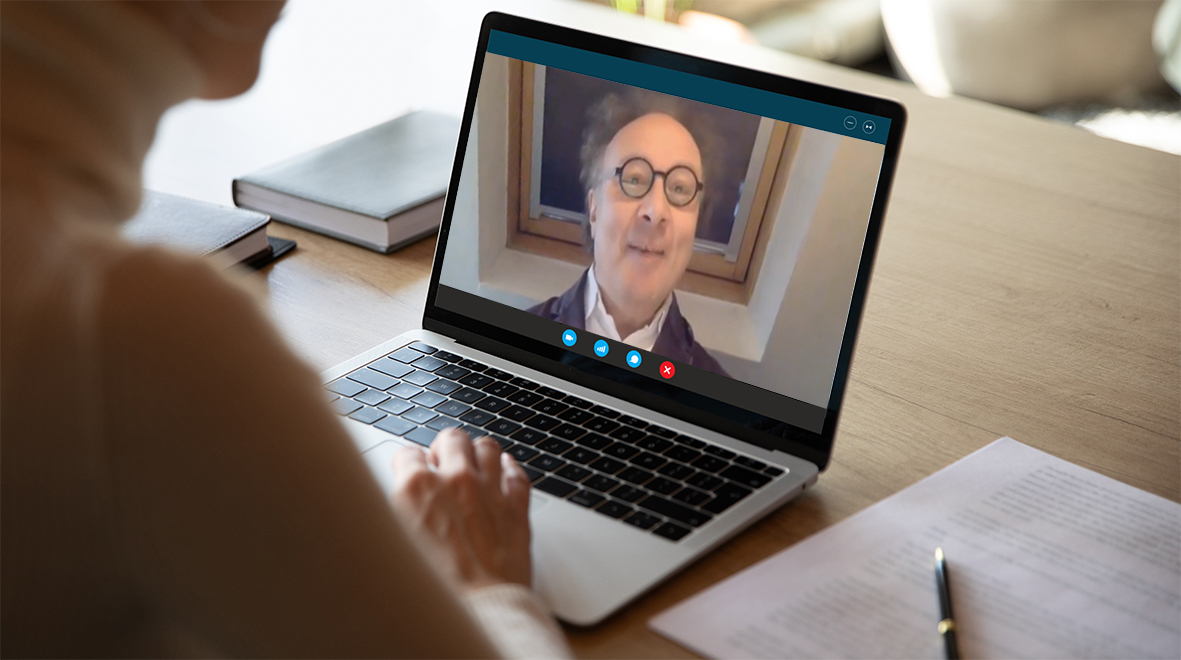
Professor Danny Altmann explores how the pandemic has offered new perspectives on his research, leading to new collaborations and engaging with policy.
If any of us ever wished for greater prominence, respect, or public understanding of our scientific contributions to society, this is not the way we would have wished to achieve it. For so many at Imperial working in diverse aspects of infection, immunity and global health, this has been a time of much urgent soul-searching as to how we can best bring our skill sets to bear on the problem most effectively, whether as clinicians, disease modellers, vaccinologists or basic immunologists. It’s hard to turn on a news broadcast or open a newspaper without seeing opinions from Imperial colleagues, clinical and scientific.
At a time when the mantra is ‘policy led by the science’, this is absolutely as it should be. We often have it ingrained as scientists to keep our heads down lest we be accused of showboating or playing ‘Johnny-Big-Potato’ by making inflated claims about our research. Yet, this is a time when it’s OK and even laudable to stick your head above the parapet: when it genuinely matters, and people genuinely want to know, what are these different types of antibody tests, is antibody protective and how long does it last, which may be the most effective vaccines. This surely is the time to step up to the plate, whether by adapting the research focus of our labs to the current issues, by communicating and trying to clarify the nuances, and of course, by remembering our commitments to our students and trying to work out how to keep them stimulated and scientifically productive despite lockdown.
I started my COVID-19 lockdown life simply trying to ensure that all in the lab I run together with Rosemary Boyton would be scientifically engaged and supported. Most labs generate data at a far greater rate than we can properly crunch it or publish it, and, barred from the lab and any new experiments, this has been an exciting opportunity to develop new informatics pipelines, offering riches of data analysis I’d only dreamt of. I emerge excited from each of the frequent Zoom meetings.
I started reading every preprint I could find from anywhere in the world on COVID-19 immunology studies, exchanging bits of news and data with colleagues around the world. I eventually developed these into a series of COVID-19 broadcast Webinars for British Society for Immunology, based on the formula of the immunology journals club we’ve run pretty well every Friday since about 1990. The Webinars brought contact with wonderful researchers from all over the world, including renewed contact with great old friends from many stages in my career.
Discussion of the points that had come up led rapidly to the crystallisation of a paper written with Danny Douek at the National Institutes of Health (NIH) and Rosemary Boyton for The Lancet: ‘What policy makers need to know about COVID-19 protective immunity.’ In it, we tried to explain why measurables like ‘correlates of protection’ or ‘herd immunity’ were just that – things that had to be empirically defined and measured, not guessed in a spirit of blithe optimism. This in turn led to participation on the British Society of Immunology-Academy of Medical Sciences Task-Force advising SAGE and to an invitation to act as expert witness before the Parliamentary Science and Technology Committee considering ‘antibody passports.’
My aim was to be dispassionate and apolitical, approaching and assessing the evidence-base for the validity of an antibody passport predictor of safety to return to work exactly as I would if I’d seen it as a proposal for peer review on a grant panel. As one who likes to try and explain science simply and colloquially, I said that we couldn’t for a virus that’s been known of since January, have the foggiest clue yet whether immune memory might linger for the next two or three years, notwithstanding predictions from the related Coronaviruses. Sadly, the Daily Mail led with the headline ‘Top immunologist warns that scientists ‘don’t know the foggiest’ yet whether surviving coronavirus protects you from catching it again’ which rather lost some of the meaning (not to mention the grammar), though coverage in the Sun, naturally, was pretty much spot on!
It’s too early to draw big conclusions about all the many ways that this pandemic will change our society in the future – as many have commented, possibly as large a social upheaval as the World Wars. Perhaps a positive influence might be in the unpredicted ways it has realigned science, healthcare and policy-makers. Adversity has forced a new shared language and, just maybe, some glimmers of shared understanding.
Danny Altmann (@Daltmann10) is Professor of Immunology at the Department of Immunology and Inflammation, Imperial College London.